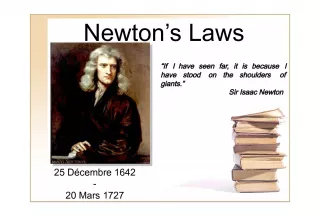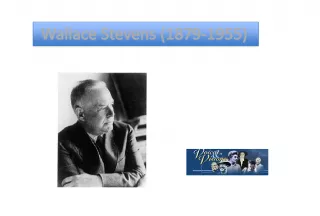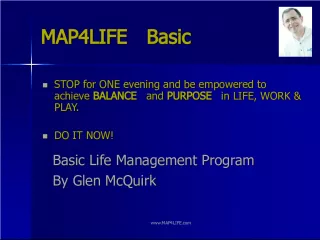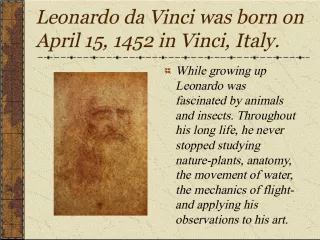The Life and Legacy of Washington Irving
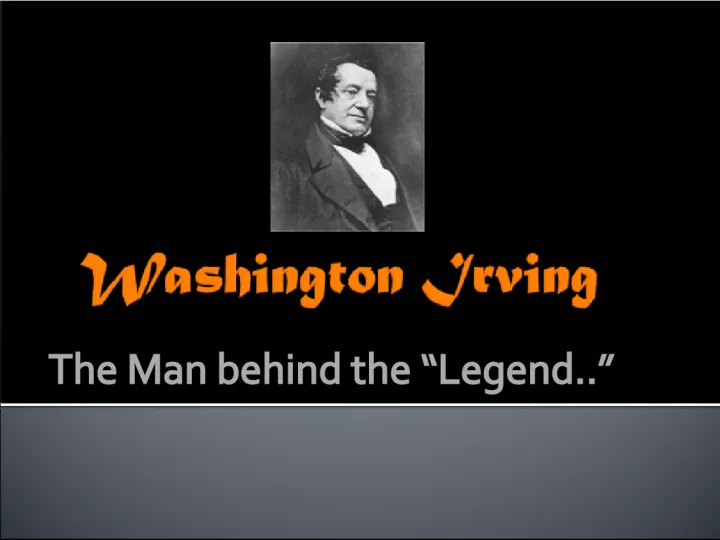

This is the story of the man behind the legend, Washington Irving, a celebrated writer and historian from New York. Born on April 3rd, 1783, in present-day Wall
- Uploaded on | 0 Views
-
 theodore
theodore
About The Life and Legacy of Washington Irving
PowerPoint presentation about 'The Life and Legacy of Washington Irving'. This presentation describes the topic on This is the story of the man behind the legend, Washington Irving, a celebrated writer and historian from New York. Born on April 3rd, 1783, in present-day Wall. The key topics included in this slideshow are . Download this presentation absolutely free.
Presentation Transcript
Slide1The Man behind the “Legend..”
Slide2Named in honour of President George Washington Born April 3, 1783 in New York (present day Wall Street) It was the end of Amer. Rev. war (post-war era) Parents were Scottish-English emigrants Eleventh child born to Sarah Sanders & William Irving Father was a deacon and successful merchant Irving family was kind and charitable to people in need Older brothers were William & Peter Washington Irving was born sickly and suffered for years He was also mischievous, sneaking out to attend plays Studied law and became a clerk, but he grew to hate law
Slide3His social life dominated his days with friends and ladies He loved to indulge in the arts and partying. Interests: WRITING, TRAVELING, landscapes, architecture He will use materials collected from these trips in his stories Enlisted in the army during the War of 1812 Served as governors’ aid and military secretary Wrote articles for newspapers edited by his brother, Peter Also wrote youthful satires (writing that pokes fun) and essays Lived in Eng. with brothers for 17 years & went into business Their business was unsuccessful and began writing for income His desire at this point was to get married and have a family
Slide4Irving’s fiancé, Matilda Hoffman dies tragically. Irving did not write for the next 6 years as a result. For a time he was an editor of a magazine In 1815 his brother, Peter gets ill. Irving tries to run the family farm, but 2 years later declares bankruptcy. He was named Minister to Spain (Ambassador) by President Tyler and was active in the field of diplomacy. He suffered from different illnesses. He had a lung ailment at one time and was unable to walk at another point in his life.
Slide5Eventually, in 1832 he moved back to America and settled in Tarrytown, NY where he purchased a home he called Sunnyside . It was a Dutch cottage on the banks of the Hudson River. He lived there with his younger brother, Ebenezer & 5 nieces. Died on Nov. 28, 1859 on the eve of the Civil War. He was 76 years old when he passed. This was considered a long life in the 19 th century. He passed surrounded by friends and relatives in his Sunnyside home. He is buried in Sleepy Hollow Cemetery at the Old Dutch Church in Sleepy Hollow, N.Y.
Slide6Irving was the first American to make a living solely from writing and the first American to gain International success. His famous stories earned him many honors from the Royal Society, Oxford, Columbia & Harvard. His most famous work is The Sketch Book , (1819) which includes the stories “The Legend of Sleepy Hollow” and “Rip Van Winkle.” These two stories have become a huge part of American folklore and contribute to the cultural history of the U.S. Both stories take place in specific areas of NY State and include actual historical events and experiences. His works were published using the pseudonyms (pen names) of “Geoffrey Crayon, Gent.” or “Diedrich Knickerbocker.”
Slide7His works are known for their humor and vivid description of the beautiful American landscape. Irving is considered a very important 19 th century storyteller. His stories provide us with what American life was like in the 1600s and early 1800s. “The Legend of Sleepy Hollow” is based on German folklore stories, but set in New York. The story has been told and readapted into various formats: movies, children’s stories, cartoons, etc. This story is a legend because it takes place during the Rev. War (which really occurred) and the headless horseman is said to be a Hessian soldier from Germany (which were soldiers which fought in war).
Slide8There are many similarities between Irving’s biography and the things that occur in his stories. Irving is considered a participant in the Romantic movement in Literature because of his use of the American landscape as a backdrop for his stories. Romantic movement – a movement in the 19 th century that celebrated nature and individualism in the arts. Transcendentalism – a philosophical movement in the 19 th century emphasized nature as the principal source for human inspiration on an almost religious level. Stressed a human’s relationship with nature .
Slide9Irving lived and wrote during a very significant time in Amer. Irving was one of the first truly American writers. America experienced a great period of economic, physical and social growth. New concepts of what it meant to be an American developed Two political systems and governmental documents flourished: The Declaration of Independence & The Constitution. The Industrial Revolution transformed America from an agricultural (agrarian) societies with farmers, peasants and skilled laborers to industrialized cities with factories, buildings and railroads.
